-
 bitcoin
bitcoin $87959.907984 USD
1.34% -
 ethereum
ethereum $2920.497338 USD
3.04% -
 tether
tether $0.999775 USD
0.00% -
 xrp
xrp $2.237324 USD
8.12% -
 bnb
bnb $860.243768 USD
0.90% -
 solana
solana $138.089498 USD
5.43% -
 usd-coin
usd-coin $0.999807 USD
0.01% -
 tron
tron $0.272801 USD
-1.53% -
 dogecoin
dogecoin $0.150904 USD
2.96% -
 cardano
cardano $0.421635 USD
1.97% -
 hyperliquid
hyperliquid $32.152445 USD
2.23% -
 bitcoin-cash
bitcoin-cash $533.301069 USD
-1.94% -
 chainlink
chainlink $12.953417 USD
2.68% -
 unus-sed-leo
unus-sed-leo $9.535951 USD
0.73% -
 zcash
zcash $521.483386 USD
-2.87%
What are the pitfalls of Bitcoin mining?
Bitcoin mining faces scrutiny for its high energy consumption, requiring specialized hardware and contending with competition and hardware costs.
Jan 09, 2025 at 05:46 pm
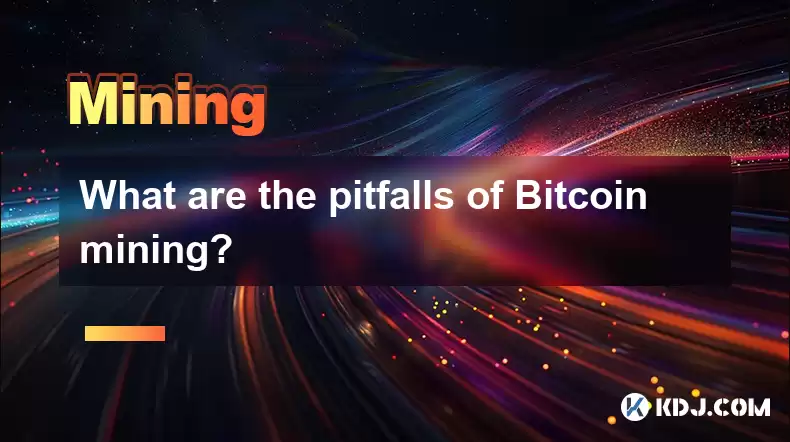
Key Points
- Energy Consumption: Bitcoin mining requires substantial energy, primarily from electricity, leading to environmental concerns.
- Hardware Costs: Mining requires specialized equipment, known as ASICs (Application-Specific Integrated Circuits), which can be expensive to purchase and maintain.
- Difficulty Adjustment: The Bitcoin network periodically adjusts its mining difficulty, making it more challenging and energy-intensive to find new blocks.
- Competition: Bitcoin mining is highly competitive, with miners constantly seeking the most efficient hardware and algorithms to increase their chances of finding blocks.
- Mining Pool Centralization: Mining pools, where miners combine their computing power to increase mining probabilities, can lead to centralization issues.
- Regulation and Taxation: Government regulations and taxation policies can affect the profitability and accessibility of Bitcoin mining.
- Malware and Security Risks: Bitcoin mining can be vulnerable to malware and security risks, targeting miners' software or hardware.
1. Energy Consumption
Bitcoin mining has come under scrutiny for its high energy consumption. The process of validating transactions and creating new bitcoins requires extensive computational power, which is primarily powered by electricity. The energy demands of Bitcoin mining have raised environmental concerns, prompting debates about its sustainability. To address these concerns, miners are exploring alternative energy sources and more efficient mining methods.
2. Hardware Costs
Mining Bitcoin requires specialized hardware called ASICs (Application-Specific Integrated Circuits). These devices are specifically designed for the efficient computation of cryptographic algorithms used in Bitcoin mining. ASICs are highly expensive to purchase and require ongoing maintenance and upgrades. The capital-intensive nature of hardware acquisition can limit accessibility for individual miners and favor large-scale mining operations.
3. Difficulty Adjustment
The Bitcoin network adjusts its mining difficulty every two weeks to ensure that new blocks are found at a consistent rate. As more miners join the network, the difficulty increases to maintain the desired block time. This adjustment makes mining more challenging and energy-intensive, leading to potential profitability concerns for miners with lower-efficiency equipment.
4. Competition
Bitcoin mining is highly competitive, with miners constantly racing to solve cryptographic puzzles and claim rewards. To increase their chances of finding blocks, miners invest in the latest hardware and employ optimized mining algorithms. The competitive landscape requires miners to stay up-to-date with technological advancements and seek efficient strategies to maximize their profits.
5. Mining Pool Centralization
Mining pools allow individual miners to combine their computing power to increase their probability of finding blocks. However, mining pool centralization raises concerns about the distribution of mining rewards. Large mining pools, often operated by single entities, can have significant influence over the network and potentially affect the decentralization aspect of Bitcoin.
6. Regulation and Taxation
Government regulations and taxation policies can impact the profitability and accessibility of Bitcoin mining. Regulations aimed at combating money laundering or enforcing reporting obligations may affect mining operations. Taxation on mining income can also influence miners' profitability, especially in jurisdictions with high tax rates.
7. Malware and Security Risks
Bitcoin mining operations can be susceptible to malware and security risks. Malicious software or hackers can target mining hardware or software to manipulate mining rewards or steal funds. Miners need to implement robust cybersecurity measures to protect their mining equipment, wallets, and operations from potential threats.
FAQs
1. What is the potential ROI of Bitcoin mining?The ROI of Bitcoin mining depends on various factors, including hardware costs, energy consumption, mining difficulty, and the price of Bitcoin. While it can be profitable for miners with efficient hardware and low energy costs, the competitive nature of Bitcoin mining limits the ROI potential for individuals with less efficient operations.
2. What is the expected lifespan of Bitcoin mining hardware?The lifespan of Bitcoin mining hardware depends on several factors, including the quality of the equipment, maintenance practices, and operating conditions. With proper care and maintenance, ASICs can last for several years, but their efficiency may decline gradually over time as newer and more powerful hardware is introduced.
3. How can I join a Bitcoin mining pool?To join a Bitcoin mining pool, you need to select a reputable pool operator, create an account, and configure your mining software to connect to the pool's server. The pool will provide you with instructions and resources to assist with the setup process.
4. What are the risks of mining Bitcoin?Bitcoin mining involves risks such as energy consumption costs, hardware depreciation, potential malware or security breaches, and regulatory changes. Miners should carefully consider these risks and conduct due diligence before investing in Bitcoin mining hardware and operations.
5. What is the impact of Bitcoin mining on the environment?Bitcoin mining consumes significant amounts of electricity, which has raised environmental concerns. However, advancements in mining technology and the exploration of renewable energy sources are being pursued to mitigate the environmental impact of Bitcoin mining.
Disclaimer:info@kdj.com
The information provided is not trading advice. kdj.com does not assume any responsibility for any investments made based on the information provided in this article. Cryptocurrencies are highly volatile and it is highly recommended that you invest with caution after thorough research!
If you believe that the content used on this website infringes your copyright, please contact us immediately (info@kdj.com) and we will delete it promptly.
- Blockchains, Crypto Tokens, Launching: Enterprise Solutions & Real Utility Steal the Spotlight
- 2026-01-31 12:30:02
- Crypto Market Rollercoaster: Bitcoin Crash Recovers Slightly Amidst Altcoin Slump and Lingering Fear
- 2026-01-31 13:10:01
- Solana's Stumble and APEMARS' Rise: Crypto Investors Navigate Volatile Markets
- 2026-01-31 13:05:01
- Bitcoin Options Delta Skew Skyrockets, Signaling Intense Market Fear Amidst Volatility
- 2026-01-31 13:00:02
- Cardano Secures Tier-One Stablecoin: USDCX Arrives Amidst Global Regulatory Push
- 2026-01-31 13:00:02
- A Shining Tribute: Oneida Woman, Washington's Army, and the New $1 Coin
- 2026-01-31 12:55:01
Related knowledge
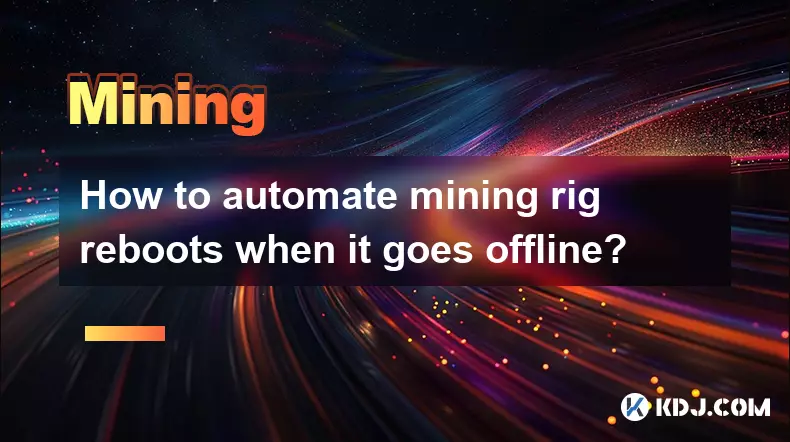
How to automate mining rig reboots when it goes offline?
Jan 23,2026 at 11:00pm
Monitoring System Integration1. Deploy a lightweight agent on the mining rig’s host OS that continuously reports hash rate, GPU temperature, and pool ...
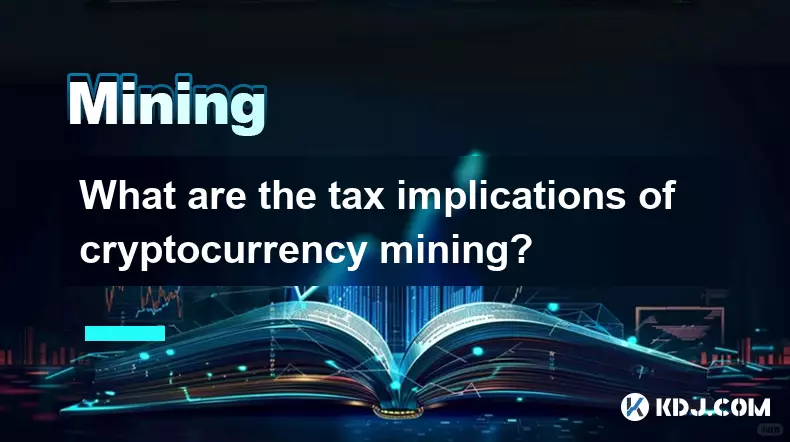
What are the tax implications of cryptocurrency mining?
Jan 23,2026 at 02:40am
Tax Treatment of Mining Rewards1. Cryptocurrency received as a reward for mining is treated as ordinary income by the IRS at the fair market value on ...
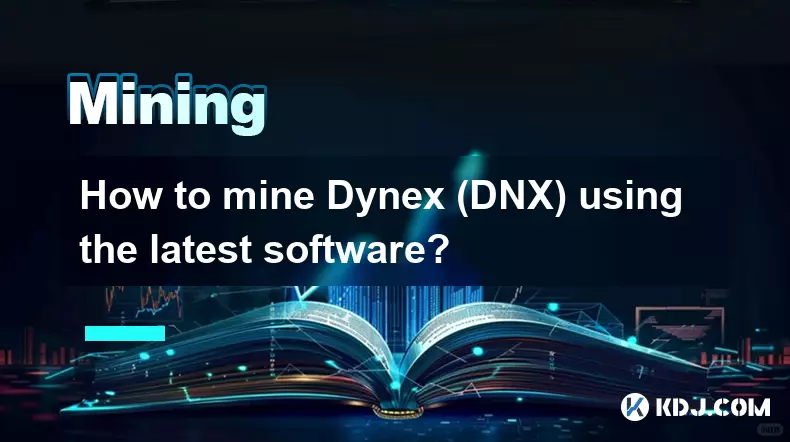
How to mine Dynex (DNX) using the latest software?
Jan 22,2026 at 10:00am
Understanding Dynex Mining Fundamentals1. Dynex (DNX) operates on a proof-of-work consensus mechanism optimized for neuromorphic computing workloads, ...
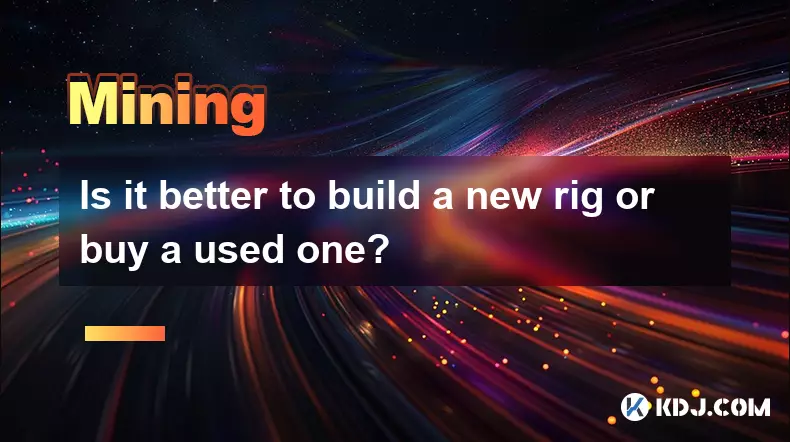
Is it better to build a new rig or buy a used one?
Jan 24,2026 at 10:20pm
Cost Efficiency Analysis1. New mining rigs come with manufacturer warranties, typically covering components for one to three years. This assurance red...
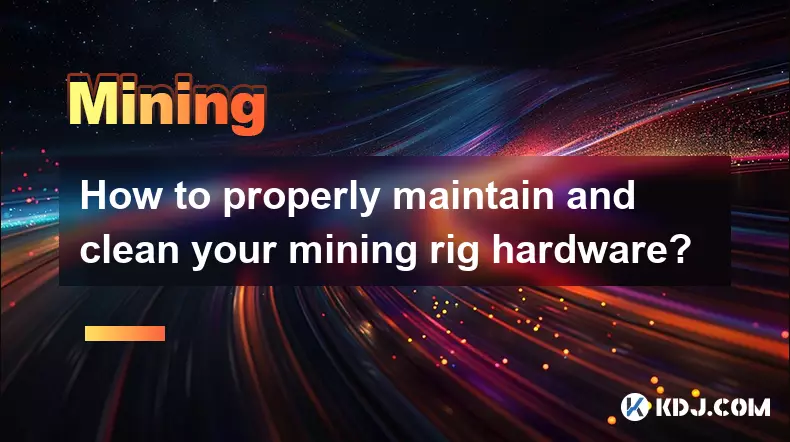
How to properly maintain and clean your mining rig hardware?
Jan 19,2026 at 11:00am
Cooling System Inspection and Optimization1. Dust accumulation inside fans and heatsinks directly reduces thermal dissipation efficiency, leading to h...

What is the best way to sell your mined crypto for cash?
Jan 20,2026 at 02:59am
Choosing the Right Exchange Platform1. Select an exchange with strong regulatory compliance and a proven track record of secure withdrawals. Platforms...

How to automate mining rig reboots when it goes offline?
Jan 23,2026 at 11:00pm
Monitoring System Integration1. Deploy a lightweight agent on the mining rig’s host OS that continuously reports hash rate, GPU temperature, and pool ...

What are the tax implications of cryptocurrency mining?
Jan 23,2026 at 02:40am
Tax Treatment of Mining Rewards1. Cryptocurrency received as a reward for mining is treated as ordinary income by the IRS at the fair market value on ...

How to mine Dynex (DNX) using the latest software?
Jan 22,2026 at 10:00am
Understanding Dynex Mining Fundamentals1. Dynex (DNX) operates on a proof-of-work consensus mechanism optimized for neuromorphic computing workloads, ...

Is it better to build a new rig or buy a used one?
Jan 24,2026 at 10:20pm
Cost Efficiency Analysis1. New mining rigs come with manufacturer warranties, typically covering components for one to three years. This assurance red...

How to properly maintain and clean your mining rig hardware?
Jan 19,2026 at 11:00am
Cooling System Inspection and Optimization1. Dust accumulation inside fans and heatsinks directly reduces thermal dissipation efficiency, leading to h...

What is the best way to sell your mined crypto for cash?
Jan 20,2026 at 02:59am
Choosing the Right Exchange Platform1. Select an exchange with strong regulatory compliance and a proven track record of secure withdrawals. Platforms...
See all articles





















![Ultra Paracosm by IlIRuLaSIlI [3 coin] | Easy demon | Geometry dash Ultra Paracosm by IlIRuLaSIlI [3 coin] | Easy demon | Geometry dash](/uploads/2026/01/31/cryptocurrencies-news/videos/origin_697d592372464_image_500_375.webp)




















































